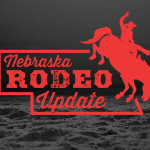Lincoln, Neb. — More than $18 million was invested in lobbying efforts in 2020 in Nebraska according to a new Common Cause Nebraska report. By comparison, in 2000, just over $3 million was spent lobbying. Jack Gould, issues chairman for the group, is worried about the amount of influence lobbyists have on lawmakers. He is especially worried about senators who lean on lobbying firms to finance their election campaigns…
“We feel that the lobby should operate on the same level playing field as the public,” Gould asserted. “Which means that they shouldn’t be involved in campaign finance. We find the lobby making direct payments from lobbying firms, and we find them hosting fundraisers for candidates.”
While gross earnings for lobbyists at the Nebraska Legislature decreased by nearly a million dollars in 2020 because of the COVID-19 pandemic, compensation was up for more than half of the state’s top ten lobbying firms. Lobbyists have enjoyed few limits in Nebraska and nationwide after the U.S. Supreme Court’s 2010 ruling that money is a form of protected speech in its landmark Citizens United decision.
———————————————————————————————————————————–Executive Summary: Common Cause Nebraska Report on lobbyist spending in 2020
In 2000, gross earnings for the Nebraska lobby were recorded as $3,002853. Since then, we have seen
increases each year reaching an all-time high in 2019 of $19,405,061. The 2020 COVID-19 pandemic,
however, brought the steady growth in total earnings to a halt.
Gross earnings in 2020 dropped nearly a million dollars from $19,405,061 to $18,589,372, but the loss
in revenue to the individual lobbying firms was not as dramatic as one might think. In fact, lobbyist compensation increased for more than half of our top-10 firms. It appears that the limits on entertainment
and tickets to events reduced lobby expenses, making more funds available for lobbyist compensation.
Issues at the capitol caused major educational entities to invest more heavily in lobbying. Eight of 15 school
districts that employ their own lobbyists increased their spending. Most school districts without their own
lobbyists had to hope their interests were protected.
Although the University of Nebraska slightly increased its overall spending, it reduced spending on entertainment, gifts, and tickets by more than $33,000. The virus dramatically cut into athletic ticket distribution.
The accountability and disclosure records indicate lobbyist entertainment expenses for our legislators
as $74,576, but none of that money showed up on our senator’s gift report. Since food and beverages are
exempt from reporting, we have to conclude that everyone is dining well at the capitol despite COVID-19.
Common Cause Nebraska continues to be concerned about the influence of campaign contributions from
lobbyists, political action committees (PACs), and principals (entities that hire lobbyists). Too often, we
think of lobbying as just wining, dining, and golf. Campaign contributions from special interests are likely
to carry more influence than a steak dinner or a round of golf.





